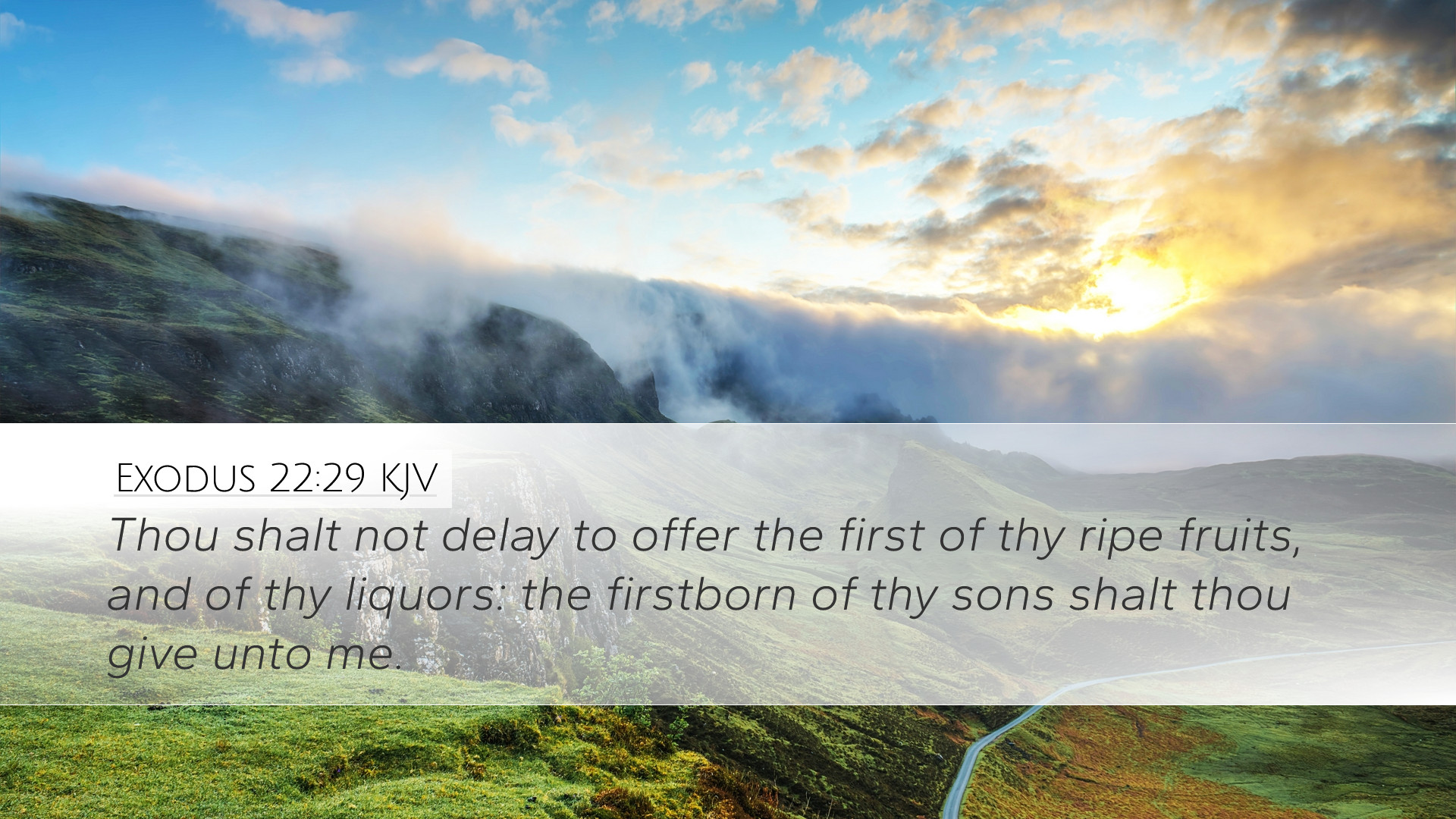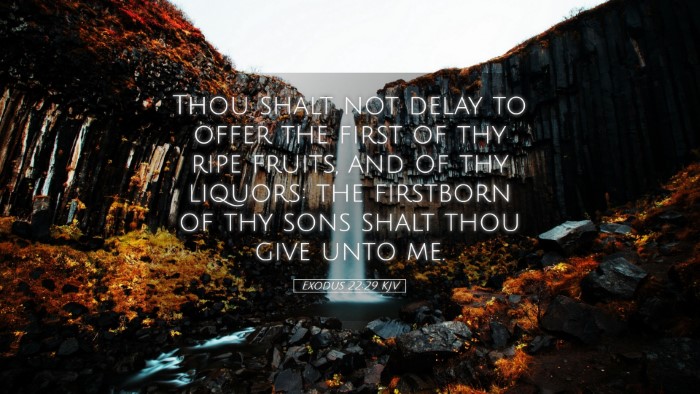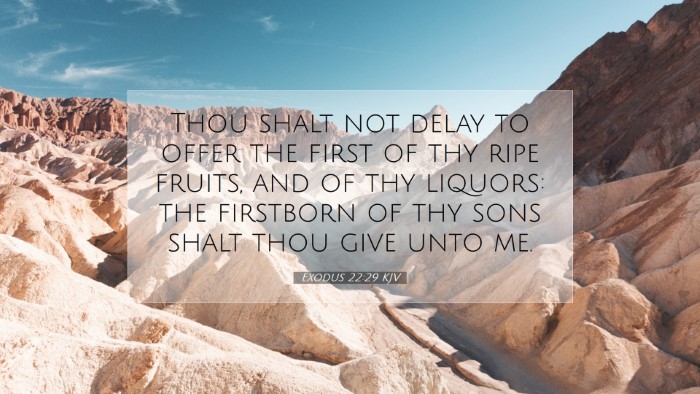Bible Commentary on Exodus 22:29
Verse: "Thou shalt not delay to offer the first of thy ripe fruits, and of thy liquors: the firstborn of thy sons shalt thou give unto me."
Introduction
This verse is situated within a larger context of laws and regulations given to the Israelites as they settled in the Promised Land. It emphasizes the importance of giving to God what is rightfully His and reflects a broader theological principle that resonates throughout Scripture.
Contextual Background
Exodus 22:29 is part of a series of instructions regarding social justice, property rights, and religious duties. The Israelites are reminded of their responsibilities towards God and each other, highlighting the covenant relationship established between them and the Divine.
Theological Significance
This verse underscores the concept of dedication and punctuality in fulfilling one's obligations to God. It illustrates that offerings are not merely acts of ritual but essential components of the covenant relationship.
Commentary Insights
Matthew Henry's Commentary
Matthew Henry emphasizes the notion of priority in giving to God. He points out that the first fruits and firstborn are to be offered without delay, suggesting that God desires our best and our earliest forms of devotion. Henry states, "We must not only give to God, but we must give Him the very best that we have, and we must do so in a timely manner." This reflects a heart oriented towards worship, acknowledging God as the ultimate source of blessings.
Albert Barnes' Notes
Albert Barnes provides a detailed examination of the terms "ripe fruits" and "liquors," underscoring their significance in an agrarian society. He suggests that these offerings represent the fullness of one's labor and success. Barnes comments, "The obligation to render to God the first fruits of one's labor is a fundamental aspect of worship, signifying gratitude and recognition of God's providence." He cautions against procrastination in giving, which can indicate a lack of priority in our spiritual lives.
Adam Clarke's Commentary
Adam Clarke expands on the implications of the verse concerning the firstborn sons, who were to be consecrated to God. Clarke notes, "The dedication of the firstborn not only points to the gratitude of the parents but also serves as a reminder of their deliverance during the Exodus." This act of offering was not merely a requirement but a memorial of God's redemption and grace. He argues that the phrase "thou shalt not delay" serves as a warning against allowing worldly concerns to overshadow spiritual obligations.
Application for Today
For modern believers, Exodus 22:29 serves as a powerful reminder of the importance of prioritizing God in their lives. This can manifest not just in terms of financial giving but also in time, talents, and the willingness to serve others. It encourages believers to reflect on their practices of worship and stewardship, driving home the idea that our relationship with God should come before all earthly matters.
Practical Implications
- Worship through Giving: Acknowledging that all blessings come from God, we are encouraged to respond with gratitude.
- Timeliness in Service: Procrastination in spiritual matters can hinder our growth and relationship with God.
- Dedication of Resources: Understanding that our time and talents are also valuable offerings to God.
Conclusion
Exodus 22:29 encapsulates profound theological truths about priority, devotion, and gratitude that are essential for believers in any age. The teachings distilled from the commentaries of Matthew Henry, Albert Barnes, and Adam Clarke invite pastors, students, theologians, and scholars alike to examine their offerings to God. As we strive to offer our 'first fruits,' let us cultivate a habit of honoring God with prompt and heartfelt contributions in every area of our lives.


